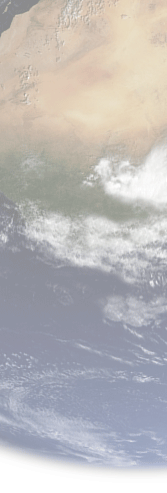“Educating Students for the 21st Century through Research Abroad Experiences”
Science and technology are the keys to a better future for humankind. Science requires free and open inquiry, and search for basic truths, that should not be driven or compromised by ideology.
The Velvet Revolution brought freedom and independence to the Czech Republic and allowed Czech scientists to travel freely again to engage in dialogue and collaborations with scientists around the world. Coincidentally, this happened as the University of Arizona (UA) was developing the Undergraduate Biology Research Program (UBRP) and the Biomedical Research Abroad: Vistas Open (BRAVO!) Program. This combination of circumstances created a fertile environment in which to establish scientific exchanges between students and scientists from the University of Arizona and those at the University of South Bohemia/Czech Academy of Sciences.
UBRP, which employs undergraduates as student workers in research groups, grew from the belief that students learn best when they are actively involved in their own learning as opposed to being passive recipients of information dispensed through lectures. We recognized that the research groups on the UA campus offered an important resource for training the next generation of scientists. UA is a large public university that enrolls more than 38,000 students and is ranked 31st among universities in the United States in research. We understood that attaching students to UA scientists would not only enrich our students’ educational experience but would also advance knowledge through students’ discoveries. It was clearly a “win-win” situation.
Our efforts did not stop there. Science is an international endeavor and UA hosts more than 3,000 visiting scholars and students every year who come to work and study on the UA campus. The presence of these individuals enriches our students’ experience by exposing them to different cultures and points of view. I often ask visiting scholars to speak to the undergraduate research students and it was after one of these presentations that the idea for the BRAVO! Program emerged. This coincided with Dr. Libor Grubhoffer’s visit to UA to collaborate with UA biochemists.
Dr. Grubhoffer was instrumental in helping us obtain our first grant from the United States (US) National Institutes of Health (NIH) to send our undergraduate students abroad to do research related to the work they do at UA. Since 1992, when BRAVO! began, we have sent more than 180 UA undergraduates to work in 34 countries on six continents and at 89 institutions. Of these, 14 students worked in the Czech Republic. Eight UA undergraduates, one UA medical student, and two UA faculty members worked in Ceske Budejovice under the auspices of BRAVO! Our NIH grant also funded four scientists from the Czech Academy of Science and the University of South Bohemia to participate in short term research visits to UA. In 1997 we obtained a grant from the US National Science Foundation to bring the graduate students of our foreign collaborators to UA for short term visits. With this grant we were able to support seven Czech graduate students involved in research in Tucson.
On my first visit to the Czech Republic, I was delighted to find that the University of South Bohemia and several institutes of the Czech Academy of Sciences are housed on the same campus. This arrangement facilitates the involvement of Czech scientists in the education of students at the University of South Bohemia, in much the same way that the research groups on the UA campus enrich the educational experience of UA students. There is no more powerful way to learn than to have students apply what they know from lectures, books, talking with others, and observations, to solving problems. This cultivates critical thinking skills that can be applied to many situations.
The BRAVO! program provides an immersion experience not only scientifically, but also culturally. Both are important to the future of humankind. All the scientific knowledge in the world will not solve the problems of humanity if we are not able to work in concert with people from other cultures towards shared goals. That is why it is vitally important that students be able to travel and experience a different culture first hand. In the process they grow to appreciate the diversity of world-views and they grow in their understanding and appreciation of different cultures. It is imperative that we educate students to think of themselves first as citizens of the world, invested in the survival of the planet and the well-being of all of humanity. This provides them the perspective to move ahead for the common good. Their scientific training gives them the tools to address contemporary problems of importance to us all. |








